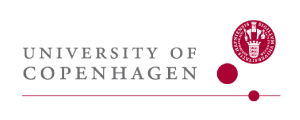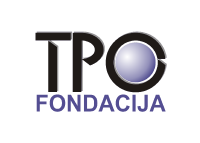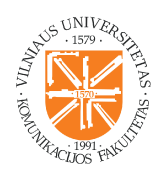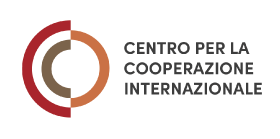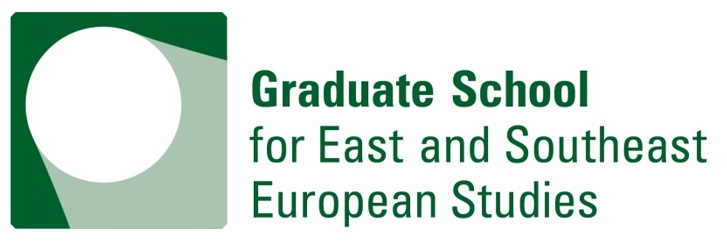We aimed to create a partnership that would combine academic theoretical approaches from the areas of literature, history, social anthropology, gender with empirical knowledge and richness of interactive teaching methods of associated partners from non-governmental sector. We believe that combining rich experiences from different sectors, crossing the comfort zones of our own professional fields and working within and for the communities, can advance the existing practices and contribute to search for new teaching methodologies to be implemented in terciary education.
UNIVERSITY OF COPENHAGEN - The Department of Cross-Cultural and Regional Studies
The Department of Cross-Cultural and Regional Studies was founded in May 1, 2004 when five departments at the Faculty of Humanities, University of Copenhagen, were merged into one. The department's primary objective is to conduct research of the highest international order. The research includes a wide range of disciplines, the most important of which are literature and social studies, history of religions, anthropology, archaeology and history. The department thus contributes to the development of our knowledge of culture and a better understanding of different cultural, historical and current phenomena in this globalised world that harbours so many potential conflicts because of the increasing number of cross-cultural meetings. The department wants to communicate this knowledge by educating candidates and by extensive interaction with the business community, the media, schools and all institutions that depend on knowledge of historical and contemporary cultures.
Transkulturalna psihosocijalna obrazovna institucija
TPO Foundation (Transcultural, Psychosocial, Educational Foundation) advocates equality, dialogue, and peacebuilding through a partnership of civil society and academic and state institutions. Bridging the gap between academic and activist, governmental and non-governmental and religious and non-religious worldviews, TPO Foundation is a leading organization in its inclusive approaches to education for peace, gender equality and leadership. TPO Foundation was developed from HNI TPO organization network with headquarters in Amsterdam, and is present in BH from 1998, but from 2006 it is registered as local BiH organization. Recently, TPO launched the Resistance, Peace, Trauma and Healing Archive program which consisted of two main activities: the international conference and interdisciplinary classrooms in Bosnia and Herzegovina, Serbia and Croatia. The ultimate goal is peace-building and societal solidarity, collaboration in the region, which will be oriented to multiple aspects of traumatic experiences, both collective and individual.
The key programs are:
- ELLI program (EDUCATION, LEARNING AND LIVING)
- PAR program (PEACE ACTIVISM AND RECONCILIATION)
- LIFE program (LEADERSHIP OF YOUNG PEOPLE AND WOMEN)
PATRIR, PEACE ACTION, TRAINING AND RESEARCH INSTITUTE OF ROMANIA
PATRIR works to transform the way we deal with conflicts, working from the local to the global levels – in partnership with communities, countries, and national and international organisations – to make peacebuilding and the constructive transformation of conflicts the basis for sustainable peace. Since its inception in 2001, PATRIR has worked to ensure that human interaction is characterised by respect for anybody, not only the people we agree with. The Institute has since then worked in over 40 different countries to strengthen local capacities for peace both on individual, community and institutional levels. In Romania, PATRIR is the contact point for the No Hate Speech network in Romania. Furthermore, the organisation is increasingly working on prevention of further polarisation in European societies.
UNIVERSITY OF VILNIUS, FACULTY OF COMMUNICATION
The Faculty of Communication of Vilnius University is the most cohesive school of communication sciences not only in Lithuania but also throughout Eastern Europe. It has 5 academic departments, the staff of the Faculty embrace more than 60 researchers – it is the largest team of communication and information scientists in Lithuania. The strategic mission of the Faculty is to conduct high level research and to cultivate the base for studies in information and communication sciences, matching the goals of European Union for development of scientific research space in this field. Research areas of the faculty include cultural heritage, its digitization and communication using different medias, its role in the modern society, etc.
CENTRO PER LA COOPERAZIONE INTERNAZIONALE - Osservatorio Balcani Caucaso Transeuropa (OBCT)
Osservatorio Balcani Caucaso Transeuropa (OBCT) is a think tank and online media on European affairs, combining information, research, training and dissemination activities. Established in 2000 as department of the Peace Bell Foundation, currently is part of the International Cooperation Centre (CCI). OBCT focuses on six EU member states, seven EU Enlargement countries and the Neighborhood area. From its start, it has been committed to easing the East-West divide in the construction of the European identity also by addressing memory-related issues with: 2 documentary films, AFTER SREBRENICA and CIRCLE OF MEMORY; 1 educational DVD, AESTOVEST; a multidisciplinary research on the Italian anti-war movement during the Yugoslav wars; a project on the role of testimony in the memory of the Yugoslav dissolution; publications, events, lectures as well as via the regular information & awareness raising activities.
UNIVERSITY OF REGENSBURG - The Graduate School for East and Southeast European Studies
The Graduate School for East and Southeast European Studies is a joint programme by LMU Munich and the University of Regensburg in which seven extramural institutions with relevant expertise in studying East and Southeast Europe do also take part. Next to their academic impact, they emphasize also public impact. Over 25 years have passed since the fall of the Iron Curtain, but prejudices towards East and Southeast Europe are still deeply rooted in ‘Western’ societies. The team is therefore committed to the breaking down of this limited representations by transferring of knowledge to the general public by offering public lectures, workshops, and the book series “Schnittstellen” or their blog “Erinnerungskulturen” (Cultures of Remembrance).
Polskie Towarzystwo Badania Gier
PTBG is the first academic ludological society in Poland. It gathers scholars and students of numerous universities, different specializations (linguistics, theory of literature, sociology, psychology, philosophy, history, economy, computing, and other sciences and arts) and professions, as well as practitioners – game players and game designers, dealing with broadly perceived game issues, especially Role–Playing Games and computer games. The aim of the association is to popularise and develop the knowledge of games, both in the theoretical (interdisciplinary, as well as from the point of view of particular disciplines) and practical (creating and distributing games; didactic applications) perspective. The PTBG aims to assist its members in establishing valuable scholarly theoretical assumptions and introduce innovative practical solutions. The association organises – alone and through cooperation with academic institutions – meetings, conventions, conferences, workshops, etc.
